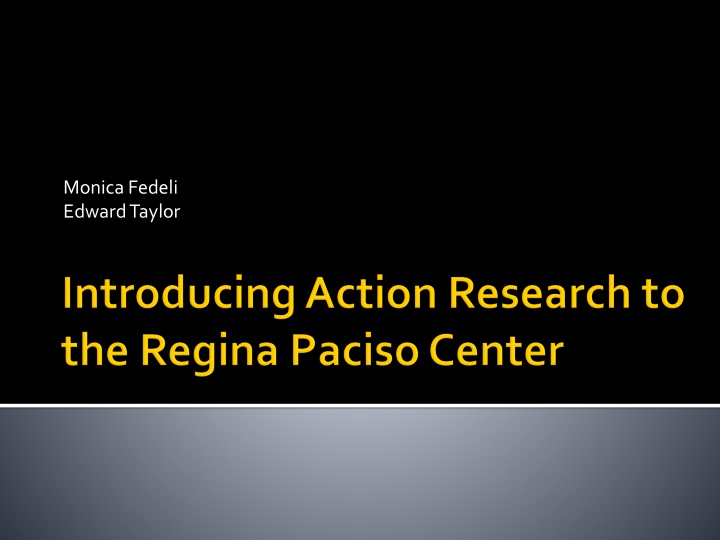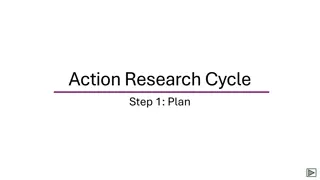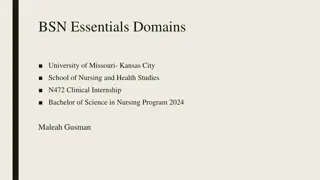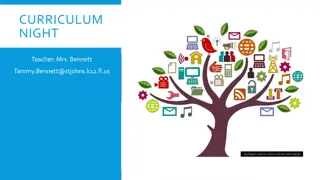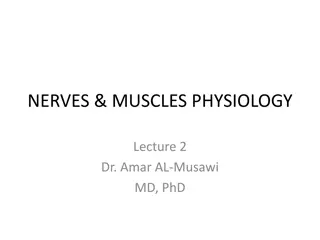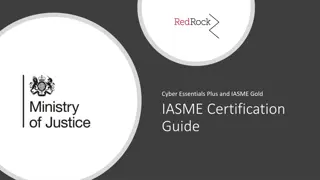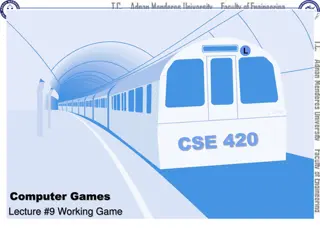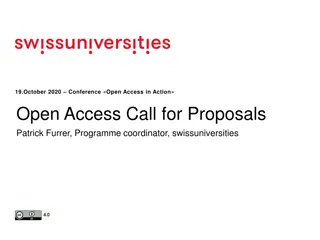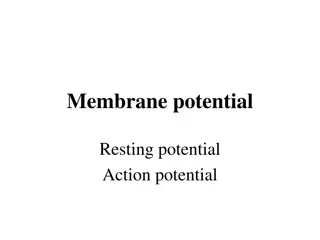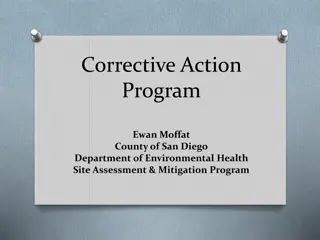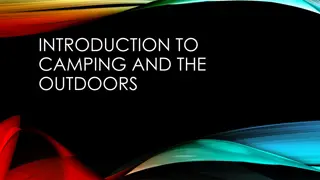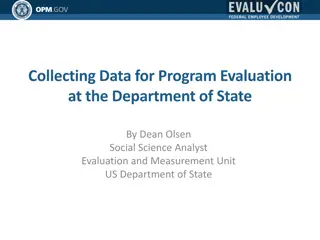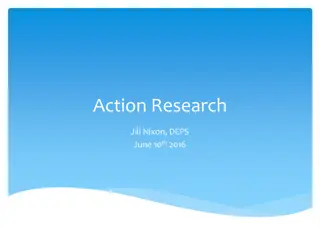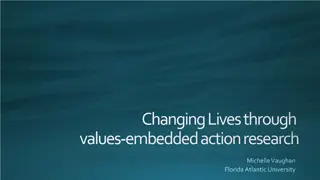Action Research Essentials
Action research involves practitioners interpreting and solving local problems, reflecting on practices, and empowering professionals. It focuses on solving problematic situations, enhancing practice, and is a continuous, participatory process with shared ownership and active participation.
Uploaded on Feb 17, 2025 | 2 Views
Download Presentation

Please find below an Image/Link to download the presentation.
The content on the website is provided AS IS for your information and personal use only. It may not be sold, licensed, or shared on other websites without obtaining consent from the author.If you encounter any issues during the download, it is possible that the publisher has removed the file from their server.
You are allowed to download the files provided on this website for personal or commercial use, subject to the condition that they are used lawfully. All files are the property of their respective owners.
The content on the website is provided AS IS for your information and personal use only. It may not be sold, licensed, or shared on other websites without obtaining consent from the author.
E N D
Presentation Transcript
Monica Fedeli Edward Taylor
When you think of action research what comes to mind? Examples? Based on your experience what makes for a successful action research project?
Practitioner research Interpreting a particular phenomenon/problem Solving local, practical problems Reflecting on the practices Transforming and emancipating professionals Examples A teacher exploring the impact of new education intervention An extension worker promoting a community development project (Merriam & Tisdell, 2015)
1. Focuses on a problematic situation Solve the problem Enhance the positive Improvement of practice Action research is oriented toward some action or cycle of actions that organizational or community members are taking to address a particular problematic situation. (Herr & Anderson, 2015,p. 4)
2. Action Research Process: Continuous spiral, emergent Plan what the research/co-research (participants) are going to first steps Act implementing what is initially planned Observe observe (collect data) what happened due to the action Reflect think deeply about the results and what they will for the next plan of action (Kuhne & Quigley, 1997).
3. To some degree the researcher involves participants as co-investigators/researchers. Influencing factors Shared ownership Context Different phases of the study Active participation is the key to feelings of ownership that motivates people to invest their time and energy to help shape the nature and quality of the acts, activities and behaviors in which they engage (Stringer, 2014, p. 31)
4. Researcher - Insider/Outsider Insider to an organization -(a teacher doing action research in her classroom) Collaborative researcher (engaging a group of teachers within a school) Outsider working as researcher within a community that is not your own Action research seeks to develop and maintain social and interpersonal interactions that are non-exploitive and enhance the social and emotional lives of all people who participate (Stringer, 2014, p. 23).
5. Collect and analyze multiple forms of data Most use qualitative forms of data (interviews, field notes, focus groups, document analysis) Quantitative surveys (e.g., assessing the a community problem from the perspective of community members)
1. Technical action research guided by an interest to improving control over outcomes; 2. Practical action research guided by interest in education or enlightening practitioners so they can act more wisely and prudently; 3. Critical or participatory action research guided by an interest in emancipating people/groups from irrationality, unsustainability and injustice (Kemmis, McTagger, & Nixon, 2014, p. 14).
Hasa social and community orientation Contributesto emancipationand change Includesqualitative data collection(often) Improvesthe qualityof organizations, communities, and people. (Stringer, 1999) (Creswell, 2008,p.603)
Generalizability Unique settings On the margins of the academy as a research method Tension between ownership of the group and needs of the researcher ? ?
The educational center Regina Pacisois located in Quarto a very degraded area in Napoli The center addressed its activities to: young peoplewith experience in jail, or alternative penalty, children and parents living in a very poverty or disadvantaged context, people with great economic problem that need pedagogical or psychological support.
Educators, Phycologists Coordinators Collaborative team Parents Students, Childrens Administrators Comminity stakeholdes
Empower individuals through collaboration in groups Encourage educators and advisors to reflect on their practices Promote a process of continuing sharing and improving of practice.
Plan an activity that introduces the idea of action research to the educators in Naples! Goals: Beginning understanding action research Start an action research project that addresses a problem at the Regina Paciso Center Context Researchers - 2 hours to observe educators work Researchers 2 hour workshop Educators have limited English skills 12-15 (people) Educators, Supervisors, Coordinators
Develop an outline of a plan and schedule for the 2 hour workshop Brief explanation of activities Identify major challenges
Design and recognize the phases Remember that the researcher will be the participant in his/her research project Collect data and analyze it Consider a full array of data-collection types (quantitative-qualitative) Decide on the point of entry Construct a realistic plan of action for this educational setting (Reviewed from: Creswell, 2008, p.616)
